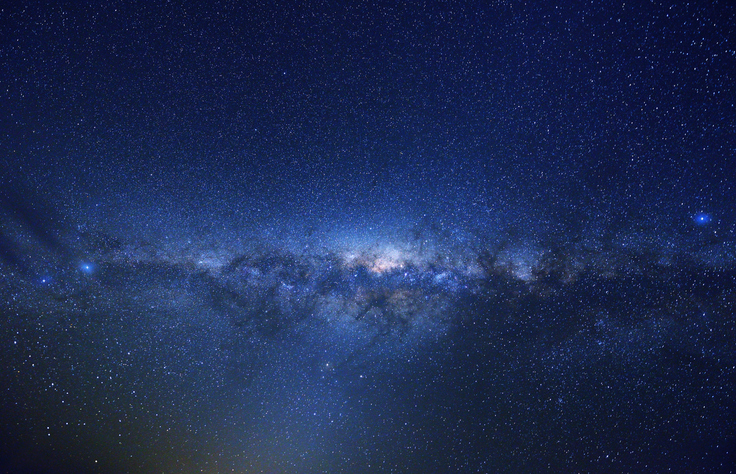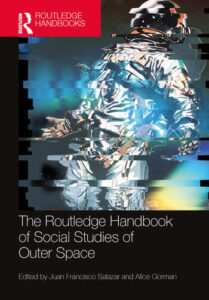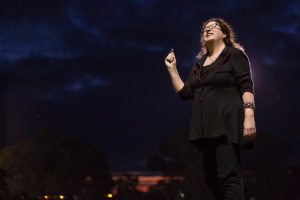
The new space age has reignited questions about how humans should engage in space and the right path for future exploration involving national space programs and private industry.
These crucial questions about civilian and military applications are in a new book which explores the social and cultural aspects of humanities’ journey off-Earth and how it will influence us as a species into the future.
 Fifty leading international researchers have contributed to The Routledge Handbook of Social Studies of Outer Space as part of the authors’ wider call for collective engagement in order to influence the future of research and exploration among the stars.
Fifty leading international researchers have contributed to The Routledge Handbook of Social Studies of Outer Space as part of the authors’ wider call for collective engagement in order to influence the future of research and exploration among the stars.
Launched at the Australian Space Discovery Centre in Adelaide this week, the new handbook has been edited by internationally renowned Western Sydney University Professor Juan Francisco Salazar and Flinders University “Dr Space Junk” Associate Professor Alice Gorman.
As interest continues to soar in space exploration and prospects of off-Earth life, the handbook offers insights into contemporary social research in outer space, systems that enable and sustain space exploration, environmental issues created by space junk, and often overlooked themes like the human consciousness off-Earth and contemporary space art, among many other topics.
The authors also consider ethics amid increasing international debate about the future of interplanetary human activities and space governance with more than 70 nations who now operate space programs.
“This handbook raises important questions about politics, race, fairness, and environmental justice concerning space exploration and living beyond Earth,” says Associate Professor Gorman.
“Featuring 38 contributions from researchers and artists worldwide, it explores debates and raises critical questions about shaping our future in outer space. It urges a more thoughtful consideration of our interactions with outer space, emphasizing empirical, emotional, and theoretical perspectives, and outlines research practices and future agendas.”

Co-editor and Western Sydney University Professor Juan Francisco Salazar says the book showcases the diversity of perspectives and voices around social sciences and humanities in space.
The book was supported by Professor Salazar’s ARC Future Fellowship grant, which is about outer space imaginaries in Australia and internationally.
More information about the handbook is available here.
About the Editors:
Alice Gorman is an internationally recognised leader in the field of space archaeology. Her research focuses on the archaeology and heritage of space exploration, including space junk, plan landing sites, off-Earth mining, rocket launch pads, and antennas. She is an Associate Professor at Flinders University in Adelaide and a heritage consultant with over twenty-five years’ experience working with Indigenous communities in Australia. In collaboration with NASA and Chapman University, she is conducting the first archaeological study of the International Space station.
Juan Francisco Salazar is an interdiciplinary researcher, author, and filmmaker. He is a Professor of Media and Environment at Western Sydney University and an Australian Research Council Future Fellow (2020-2024). His work is interested in the politics of socioecological change, art-science collaborations, and social justice, with a recent focus on Antarctica and outer space.

